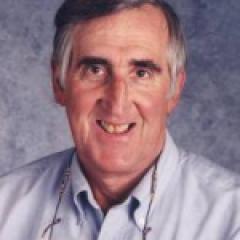Larry Cuban on School Reform and Classroom Practice: Life in Classrooms and Philip Jackson
In searching for my next project, I surrounded myself with books on teaching, teachers, and classroom life. Many of these books I had read more than once and each time in the re-reading, I learned something new. I re-learned not because I was dense the first time I read the book but simply because I had accumulated experiences since the first time I picked up the book. And that is what happened in re-reading Philip Jackson’s Life in Classrooms (1968). Rethinking my experiences over decades in classrooms pushed me again to learn anew as I read those gracefully written chapters into further reflection–beginning with the “Daily Grind.”
Like myself, Stanford University professor, Elliot Eisner, former student and colleague of Jackson at the University of Chicago said about that initial chapter: “Who can forget ‘the daily grind’? Who can forget the importance of students learning how to delay gratification? Who can forget the aroma, or should I say odor, of a place that smells of stale milk and that leaves chalk dust on your sleeves?”* I certainly have not.
In just 177 pages of text, Jackson took what he had seen in a handful of elementary schools and blazed a trail for subsequent generations of school and classroom researchers who sat alongside students and wrote up their observations. While John Dewey and others had sat in classrooms and described what they saw, by the early 1960s, many educational researchers enamored with quantitative studies and counting teacher and student behaviors to reveal narrow slices of what teachers did (e.g., how many questions teachers asked in a lesson) and what students learned (e.g., scores on a geography quiz) saw schooling as a technical process that educational engineers could improve.
Jackson’s Life in Classrooms launched a generation of qualitative studies of schools and teacher work that captured the sensibilities of teacher/student interactions within schools and what was consciously and unconsciously being taught and learned. And it was Jackson who coined the phrase “hidden curriculum,” the informal lessons taught in school (and by schooling) that often went undetected by all participants but had to be learned nonetheless (e.g. taking turns, obeying teachers, being patient). And that was nearly six decades ago.
What I took away from Jackson’s Life in Classrooms was not just one idea (“teaching is an opportunistic process. That is to say, neither the teacher nor his students can predict with any certainty exactly what will happen next.” p.166) or one approach to studying teaching and learning (anthropological approach to studying schools and classrooms). I took away the clear idea that the totality of classroom teaching and learning are complex processes where plans go awry and opportunities arise that teachers must grab to attain their goals.
Teachers make hundreds of decisions effortlessly during a lesson; they improvise as they watch the clock. Decision-making is both complex and opportunistic. A half century after Life in Classrooms appeared, only a precious few researchers have continued the observational work of Philip Jackson and written in that conversational, questioning, clear prose that Jackson patented.
Ah, I wish more researchers would re-read Life in Classrooms and update and revise the work of this gifted observer of schools.
Jackson died in 2015 (see here and here)
__________________________________
*Cheryl Craig and Maria Flores, “Fifty years of life in classrooms: an inquiry into the scholarly contributions of Philip Jackson,” Journal of Curriculum Studies, September 2019 at: https://doi.org/10.1080/00220272.2019.1659417
This blog post has been shared by permission from the author.
Readers wishing to comment on the content are encouraged to do so via the link to the original post.
Find the original post here:
The views expressed by the blogger are not necessarily those of NEPC.
